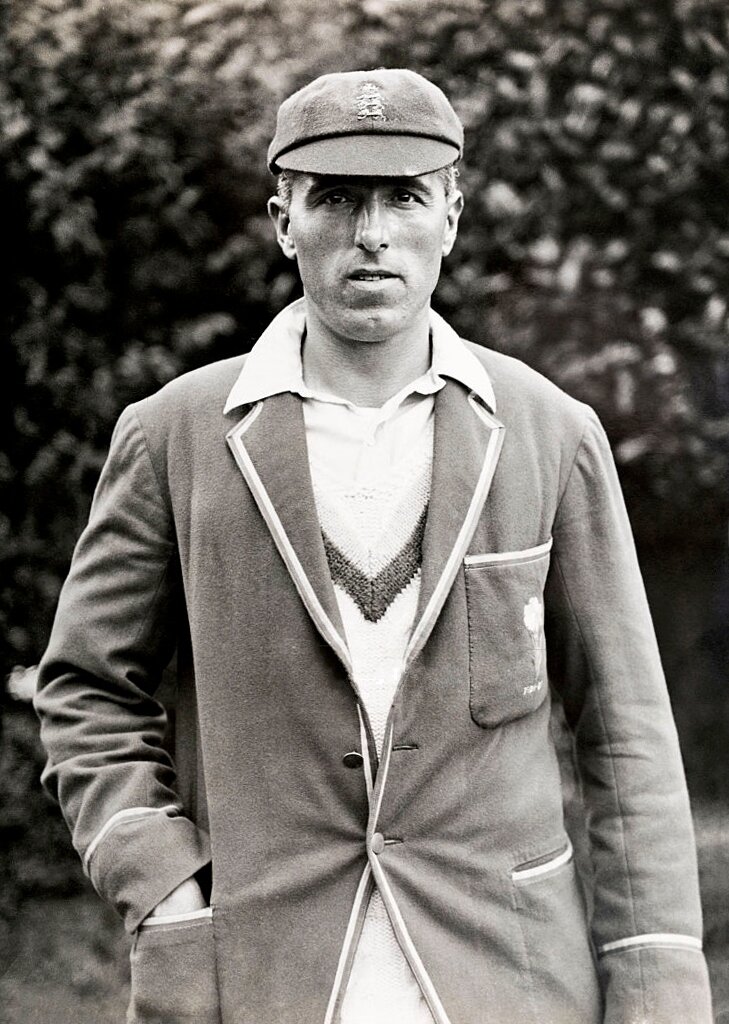by Abhishek Mukherjee
Ewart Astill's fans may object, but it will not be an exaggeration to call George Geary the first great cricketer in the history of Leicestershire. Unfortunately, he was not the richest.
He was the eldest of sixteen children of a shoemaker. He joined the Army but met with an accident. Leicestershire gave him a benefit in 1924. The match was rained off. They finally gave him a second benefit match, in 1936.
How did benefit matches work?
In a gesture shown towards long-serving professionals, teams forewent their profits for one or more predetermined matches.
However, the professional had to bear the expenses. While the teammates rarely charged, he had to pay for the travel of the touring side, the umpires, scorers, gatemen, the police, and anyone remotely related to the match, and was allowed to take whatever surplus he was left with.
In other words, it all came down to gate money, so the ideal scenario would be to get big stars on a large ground with plenty of seats. Unfortunately, during the Great Depression of the 1930s, counties were reluctant to miss out on the profit from high-profile matches.
Thus, Geary was not given a match against Warwickshire, who, while an excellent side (they finished fourth in 1934), they did not possess the 'brand' of, say, a Middlesex or a Yorkshire.
The venue, Ashby Road, Hinckley, was the third-choice ground for Leicestershire, after Grace Road and Aylestone Road. To make things worse, it was bitterly cold that year in Hinckley. Add to that the fact that runs were always difficult to come by in May, which invariably meant shorter matches and a smaller profit for Geary.
Only 200 people turned up on Day 1 as it drizzled through the day. Only 80 minutes of cricket was possible, and Warwickshire finished on 60/5, Geary having taken 1/21. They were bowled out for 133, Geary finishing with 25.5-12-36-6.
Excellent for Leicestershire. Terrible for Geary. And soon he walked out as Hollies reduced his side on 41/5. He hit two sixes and a four to provide entertainment to his faithful fans, and his 25 was the top score of the innings.
Leicestershire were bowled out for 108 in 95 minutes.
Put yourself in Geary's shoes at this point. If he ran through the Leicestershire innings the match might get over soon with perhaps an hour's cricket on the third morning. On the other hand, if Warwickshire got a subtantial second-innings score, they would run away with the match: who would pay to watch the home side lose?
As things turned out, Warwickshire were bowled out for 78 in 100 minutes. With figures of 13.3-8-7-7, Geary finished the match with 13/43 (12/18 on Day 2).
Geary had shot himself in the foot with a spectacular performance.
Of course, the drama was far from over. In the 50 minutes of cricket left, Leicershire managed 41/4 in pursuit of 104.
With the match in the balance, about 2,000 turned up. They saw some good cricket. Dempster held one end up, but Leicestershire kept losing wickets: 49/5, 69/6, then Geary for a golden duck, so 69/7...
They still needed 11 when the ninth wicket fell, but Dempster saw them home.
Geary's benefit match got over 25 May 1936.
He fouund steady income only after retirement when he coached school students. At Charterhouse he mentored a boy called Peter May, but that is another story.

